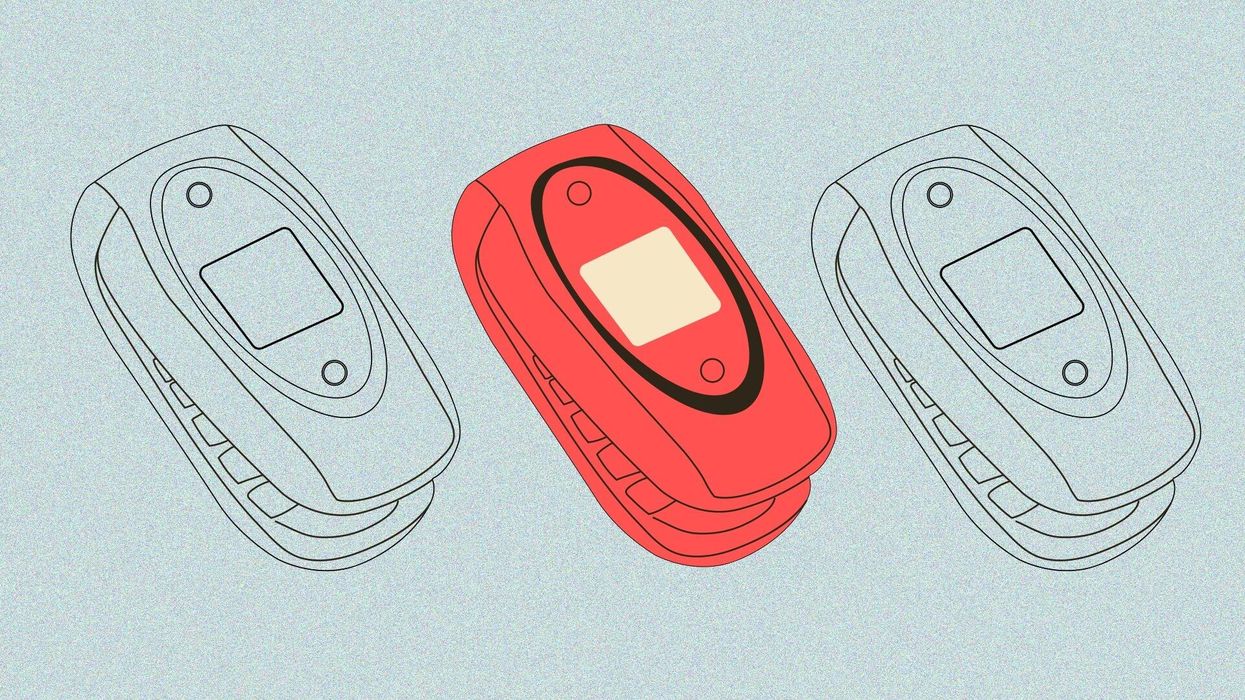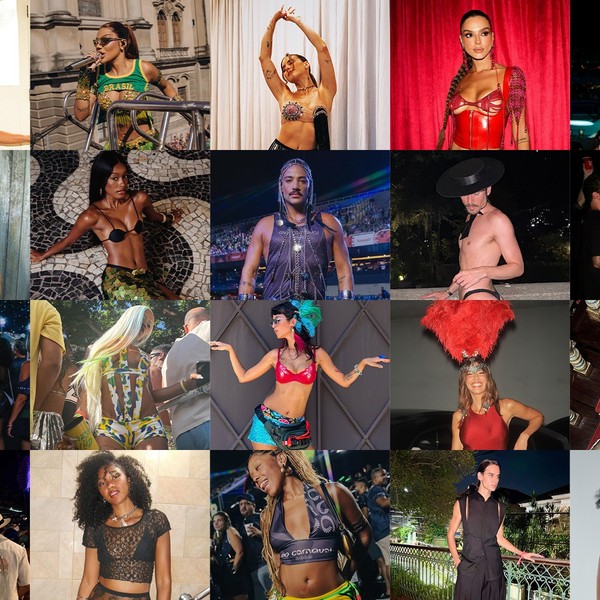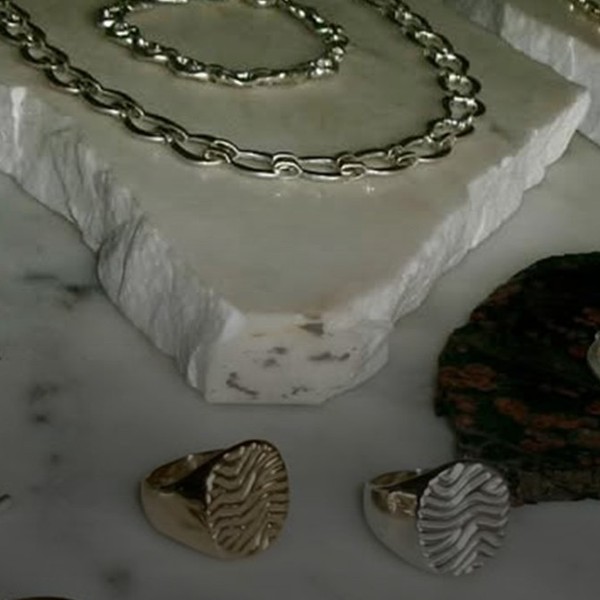
Most people were confused when I told them I was ditching my iPhone. “Why?” “Are we still going to be able to talk?” “Is it 2003?” My writing group was the one group of people who seemed to understand why I wanted to digitally unplug.
I wouldn’t say I’m addicted to my iPhone. I don’t charge it next to my bed; I use an actual alarm clock instead. I have a lockbox, and I place my phone inside for hours at a time during weekends. I usually read about a book a week. But I still find myself constantly reaching for my iPhone to be distracted or entertained, and it was severely compromising my ability to focus creatively.
I reached out to Mathilde Merouni, a writer at Iowa Writers Workshop, about the above Tweet, and why she thinks writers were more inclined to give up their smartphones or at least understand why someone would want to:
“What I mean is that although being a writer/poet doesn’t necessarily lead to wanting to do away with a certain kind of technology, the two are also not unlinked in that being a writer… requires a certain level of attention to the world and that having a smartphone can take away your ability to notice both your own thoughts and the world around you by focusing all your energy on a screen.
“I hope I don’t sound like I think writers are special magical beings who think more than other people, but some probably do recognize that it is too essential to their art to jeopardize with an attention-sucking little object. My roommate, who has a flip phone, is a bit younger than me—she’s 25—and I asked her if she thought it was a generational thing. She said she thought that, on the contrary, it had to do with feeling like she’s outside of her generation.”
The Experiment
After doing some research (a.k.a reading through moderator posts on the dumbphones Reddit community), I settled on the F1 Orchid phone from Sunbeam Wireless because it has a touch screen, added features like weather and navigation, and no Internet browser or social media.
One of my best friends, Michelle, helped me figure out how to set up my phone. I shut off my iPhone, took out my SIM card, and inserted it into my flip phone. It sat heavy in my hand, and my fingers struggled to become acquainted with my new flip phone. The touch screen did make the phone easier to use, but there was some initial friction that signaled to my brain to quit the experiment before I even began; I ignored the urge to toss the flip phone back into the box it arrived in and moved ahead. Before I turned off my iPhone, I had written down the names and numbers of 35 people whom I regularly communicate with and input them into my flip phone, so I wouldn’t have to send any “Sorry! I got a new phone! Who is this?” texts—and so I could avoid having to check my iPhone throughout the week.

My new lifeline.
The First Day
After winding down my morning routine and going out for a quick walk, I checked my phone and then my email. It was a disorienting yet pleasurable feeling—my morning was actually my own. I moved through the early hours without feeling rushed or like I had to answer to anyone.
I’ve come to rely less on social media and more on newsletters (and my close friends) for article recommendations, so I didn’t feel like I “missed” out on anything. For example, I found out about Vanity Fair’s most recent Real Housewives piece and was able to keep my finger on the cultural pulse of this country because of Emily Sundberg’s business newsletter, Feed Me.
My news and media consumption was already Boomer-coded, even before this experiment. I regularly type ‘nytimes.com’ into my browser address bar. If I’m home in the evenings, I watch ABC World News Tonight with David Muir. And when I work from home, more often than not, CNN is on in the background. But it was interesting to realize how, without social media, this consumption felt so much healthier and less all-consuming. I wasn’t dealing with the manipulation of an algorithm or caught up in a feedback loop for outrage or misinformation.

The flip phone was a hit at dinner.

I couldn’t figure out how to re-share IG stories on desktop, so I’m sharing it here.
Texting on the touchscreen keyboard was still a struggle for me on day one, and some of my friends were unable to reach me—after you deactivate iMessage, it can take anywhere from 24 to 48 hours for it to kick in, which was annoying but by the second day, all was well.
While my flip phone had maps and Waze, it didn’t have subway directions, something that made for a very interesting week for me, someone who never knows where she is going and manages to get lost in her own neighborhood. Before heading out anywhere, I wrote the directions down in a small notebook I carried with me. Honestly, it wasn’t bad, and it forced me to get acquainted with navigating the city where I’ve lived for a decade without using technology as a crutch.
The part of the day where I felt my iPhone’s absence the most was in the evenings, after work, when I didn’t have to attend a work event. But it felt pretty freeing. On that first night, I read for a bit, watched the Lions beat the Raiders, and then went to bed around 10:30 p.m.
Here’s how the rest of the week went for me:
The Great
Less Anxiety and Better Sleep
I wasn’t constantly checking news, texts, emails, or social media, which means I wasn’t bombarded with communication and overstimulation; I felt calmer and less anxious, and I didn’t feel like I was “failing” to keep up with an onslaught of information. Studies have shown that being permanently online and constantly connected can trigger greater stress and anxiety.
I slept better than I have in months. I didn’t wake up in the middle of the night, which sometimes happens, and it didn’t take me a ridiculous amount of time to fall asleep after getting into bed. I also grew more sensitive to caffeine. I got my usual—an oat milk latte—from the coffee shop near my apartment at 10 a.m., and I couldn’t fall asleep that night. The only significant change I’d made was significantly dropping my screen time. I tested it out again on another day—oat milk latte, 10 a.m.—and again, I literally couldn’t fall asleep. My unscientific opinion is that because I wasn’t being overstimulated by my iPhone and taking in less blue light, my body became more sensitive to caffeine.
More Mindfulness
Being unable to distract myself whenever I felt bored, anxious, stressed, or tired forced me to sit with my emotions and made me more aware of where I’m at on the swinging pendulum of the constantly shifting emotional, psychological, and spiritual state. It also made me stop using my cell phone as a crutch during social situations.
When I spoke to writer Liana Satenstein about her flip phone experience, she shared similar insights. “I notice a difference in my mood and emotional state when I'm using a flip phone versus an iPhone. I can't concentrate, and I'm more anxious when I have my iPhone,” she says. “Even if it is shut off in the other room, there is always the temptation. And even if your apps are off or there is a time limit on them, there is always the feeling that you can just go back on them.”
The Not-So-Great
No Google Maps
Honestly, I never know where I’m going, even with an iPhone, so this wasn’t too annoying. I also enjoyed looking up directions and writing them down before I left my apartment—I felt less rushed because I had to plan ahead. Plus, the flip phone helped me gain a better sense of direction.
It was a little difficult when I got lost (which, not surprisingly, happens quite a bit). During one detour, I had to call my little sister, Melody, so she could help me figure out where to go.
No iMessage
I’m in 18 group chats (three are within my immediate family alone). Technology can offer a false sense of intimacy, but can also enhance relationships. I love chit-chatting with my friends, sharing funny Tweets, and emoji-reacting to texts. Non-iPhone group messages just don’t hit the same.
What’s Next?
My flip phone experiment felt like a success. I had more meaningful connections with friends and strangers and more space for independent, creative insights. To be honest, even with some of the friction that comes with using a flip phone, I didn’t really miss my smartphone.
After a week away from my iPhone, looking at my screen was like taking a firehouse of dopamine to the brain. The colors looked brighter and seemed even more inviting. I hated it and immediately wanted to return to the cocoon of my flip phone.
Instead, I’ve landed somewhere in between. I deleted most of the non-essential apps from my iPhone and now use it primarily during the work week and work-related events. On the weekends, I’ll use my flip phone. It’s made such a difference—I used to think I was always in need of a vacation until I made the switch.




